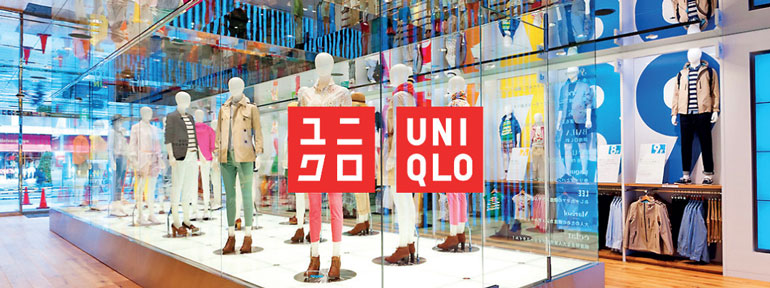Saturday Feb 28, 2026
Saturday Feb 28, 2026
Tuesday, 1 August 2017 00:01 - - {{hitsCtrl.values.hits}}
 Tokyo (Reuters): Japan’s Fast Retailing Co Ltd , owner of clothing chain Uniqlo, posted a 7.5% rise in quarterly operating profit, driven by its expanding business in Asia that offset weakness at home where a softer yen increased costs.
Tokyo (Reuters): Japan’s Fast Retailing Co Ltd , owner of clothing chain Uniqlo, posted a 7.5% rise in quarterly operating profit, driven by its expanding business in Asia that offset weakness at home where a softer yen increased costs.
Overseas operating profit at its main Uniqlo division, which is known for its lightweight down jackets and HeatTech fabric technology and accounts for around four-fifths of Fast Retailing’s revenue, soared 50.7% in the quarter.
The result underscored Uniqlo’s growing presence in Asia, which makes up 80% of its foreign sales.
With stores located in China, Hong Kong, Taiwan, South Korea and Southeast Asia, “some of these countries are more profitable than even Japan”, Chief Financial Officer Takeshi Okazaki told reporters at an earnings briefing on Thursday. Fifty Uniqlo stores opened abroad in the third quarter. With the closure of 8 stores, that brought the total number to 1,071 - more than triple the number the retailer had just five years ago.
By contrast, Fast Retailing’s operating profit in Japan fell 18%, pulled down by a weaker yen that impacted costs of goods, and rising logistics and wage costs.
Overall, it reported a profit of 49.9 billion yen ($441.67 million) for the three months through May. That compared with a 52.85 billion yen Thomson Reuters Starmine SmartEstimate, based on estimates of six analysts.
The retailer stuck with its 175 billion yen forecast for the year ending August, versus the 182 billion yen SmartEstimate of 15 analysts. SmartEstimates give greater weight to recent estimates by the more consistently accurate analysts.
Fast Retailing, founded by Tadashi Yanai, one of Japan’s richest men, is overhauling its supply chain as it looks to reduce inventory losses and boost its e-commerce offering, which lags behind peers.
The company, which has said it aims to eventually overtake Zara-owner Inditex to become the world’s biggest apparel retailer, has constructed a combined logistics centre and office space in Tokyo which brings together staff from departments including marketing and e-commerce.
“The domestic apparel industry is facing tough times and cannot expect growing sales,” Okazaki said.
“E-commerce will be our growth driver,” he said, adding that while Uniqlo was good at bringing customers to its physical locations, the company had to do more to drive traffic to its online site. In the last quarter e-commerce accounted for 6.2% of total sales.
Fast Retailing’s results cap a quarter that saw many Japanese retailers maintaining positive full-year outlooks, while some firms spoke of higher costs as they reported quarterly operating profit declines.